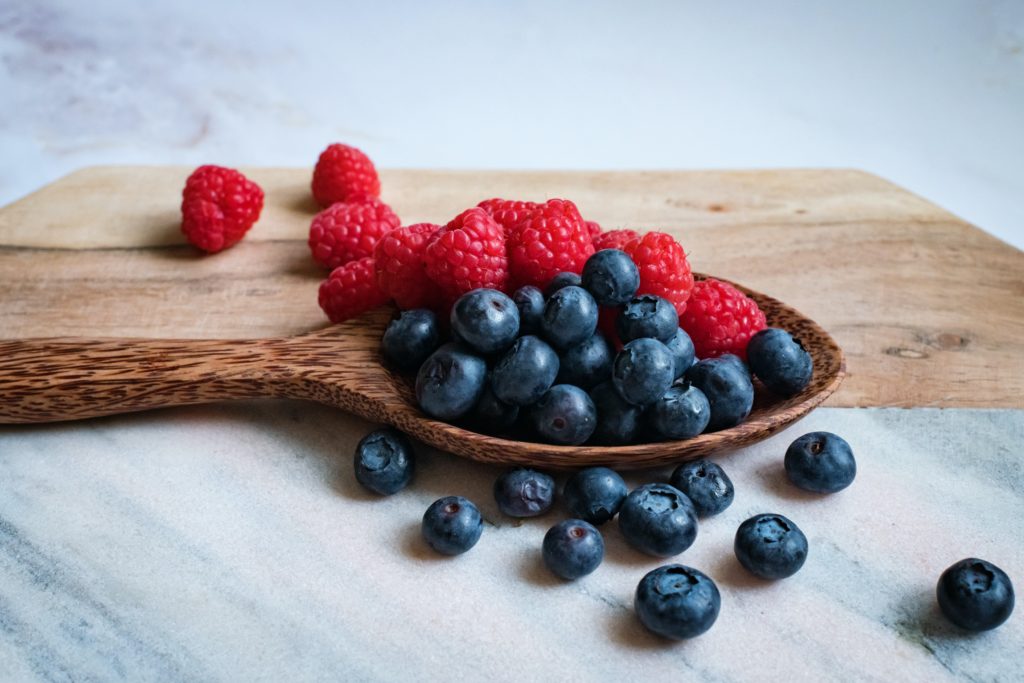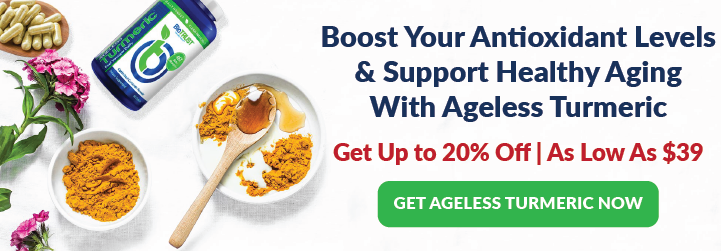13 Supplements and Foods High in Antioxidants

One very common buzzword in nutrition circles is “antioxidants.” Everyone from advertisers to healthcare providers proclaim the benefits of these important nutrients. Make no mistake, foods high in antioxidants are all the rage for good reason: they’ve been shown to help reduce levels of free radicals that can lead to disease. Indeed, combatting free radicals with foods high in antioxidants could lead to improved health and may even help slow the ravages of time.1
Antioxidants vs. Free Radicals
Antioxidants are nutrients found in a variety of foods. The body uses these as their best defense against unstable free radicals. Free radicals are normal byproducts of metabolizing foods into energy in the body. They also naturally result from the environment around us, including smoke, air pollution, pesticides, and excessive sun exposure.2 And they can even result from injury, inflammation, and yes, exercise.
The goal is to keep them in balance as when the body is overwhelmed by free radicals, it can adversely affect fats, proteins, and DNA.1 Left unchecked, free radicals can lead to oxidative stress and disrupt a cell’s DNA. This oxidative stress is then believed to increase the risk of chronic disease, including arthritis, heart disease, neurological disorders, vision loss, cancers, and more.
Free radicals have an insatiable appetite for electrons and will take them from anywhere they can get them. This loss of an electron can radically change the structure or function from the “victim” cell. It can even change the DNA-coded instructions. Antioxidants can help the body react to exposure to the unstable free radicals before they can disrupt cells, leading to damage.
Antioxidants act by donating an electron to free radicals, which then helps neutralize them and reduces their ability to disrupt cells. By helping prevent this disruption, antioxidants can reduce the havoc brought on by free radicals, decreasing the risk of chronic disease and potentially help delay aging.1
13 Foods High in Antioxidants
Fortunately, our bodies have natural mechanisms to fight free radicals. The body even produces some antioxidants, such as glutathione, ubiquinol, melatonin, and uric acid, as part of normal metabolism. 1 Another form of defense to protect against this free radical assault is to consume foods high in antioxidants.
There are hundreds, if not thousands, of antioxidant defenders that generously provide electrons to free radicals without being turned into free radicals themselves. This means they may help repair DNA and promote cell health. Some of the most familiar antioxidants include vitamins C and E, beta-carotene, other carotenoids, the minerals selenium and manganese, as well as glutathione, coenzyme Q10, flavonoids, and polyphenols.
Here are some foods high in antioxidants to add to your healthy menu:
1. Blueberries are exceptionally high in anthocyanins, a subgroup of antioxidant flavonoids shown to help support cardiovascular health. 3
2. Strawberries are another berry that’s a rich source of antioxidants, vitamins and minerals. Their red color is, for instance, due to anthocyanins, which may help prevent cardiovascular disease. 4
3. Raspberries are another terrific source of antioxidants, including manganese, vitamin C, and anthocyanins.
4. Grapes, especially red or purple varieties, are a rich source of nutrients, fiber, and antioxidants like vitamin C, selenium, and anthocyanin.
5. Dark chocolate and cocoa power, also rich in plant flavanols, have been found to help lower blood pressure and decrease inflammation to promote heart health.5 – 7 Keep in mind, though, that this applies only to dark chocolate containing between 70 and 99% cocoa, not your typical store-bought candy bar that may be labeled as “dark.”
6. Coffee is one of the best sources of antioxidants in the average American’s diet. It provides chlorogenic acid, which is a powerful polyphenol with a wide range of benefits, including potentially helping prevent weight gain. 8
7. Nuts, including walnuts, pecans, almonds, and hazelnuts, have been shown to promote heart and brain health as well as a decrease in all-cause mortality.9 – 11 In addition, these antioxidant-rich foods have been shown to provide good fats and minerals.
8. Beans not only provide a good source of protein and fiber, they can also be rich in antioxidants. Pinto beans, for instance, provide a flavonoid known as kaempferol which may help the body keep inflammation and cancer cell growth in check, at least according to animal and in vitro studies. 12 – 15
9. Spinach may help support eye health as it provides two important antioxidants: zeaxanthin and lutein, which may help prevent light damage, including from UV sunlight. 16 Other sources of these antioxidants include other dark leafy greens (like kale), pistachios, and eggs.
10. Steamed or boiled artichokes are rich sources of antioxidant polyphenols and have been shown to potentially help lower cholesterol levels, decrease the risk of cardiovascular disease, and promote liver health. 17, 18
11. Red cabbage provides vitamins A, C, K, as well as a number of antioxidants, including anthocyanins, which may support healthy levels of inflammation and promote heart health. 19
12. Beets contain a unique class of antioxidant pigment called betalains, which may support the digestive system and help decrease the risk of colon cancer. They’re also good sources of fiber, iron, folate, and potassium. 20
13. Spices and herbs, including turmeric, cinnamon, cloves, allspice, mint, oregano, and basil, not only add flavor to your meal, they also help increase your antioxidant intake. They can also help you decrease less nutritious additives like added salt and sugar.
Don’t just eat one or two foods that are high in antioxidants. A single nutrient or antioxidant can’t be all things to all systems. Each antioxidant has different actions and properties in the body, so they aren’t interchangeable. In fact, some nutrients that are antioxidants in one instance may be pro-oxidants in others.
We need to get a variety of these nutrients to stay healthy and strong. To get a variety of antioxidants, consume a rainbow of foods high in antioxidants to ensure you’re getting a diverse array of nutrients, vitamins, and minerals.
What about “superfoods”? The word superfood has a nice ring to it and has been applied to everything from blueberries to kale to avocados to coconut oil. Specific foods high in antioxidants are hailed as the latest and greatest depending on the year.
While there’s good reason to include these foods in the diet, again, it’s more important to eat a wide variety of foods high in antioxidants rather than focusing on a particular food, super or not.
What About Antioxidant Supplements?
Many people ensure they get antioxidants into their diets through the use of supplements. The National Institutes of Health estimates that 54% of vitamin C was consumed via supplementation. Vitamin E was an estimated 64%; alpha and beta-carotene were at 14%, and selenium came in at 11%. 21
However, adding antioxidant supplements may or may not be helpful, especially when compared to eating foods high in antioxidants. In fact, while some research has found benefits, other research has been inconclusive. And yet other research shows harm. For example,
- Some research found that high-dose vitamin E supplementation didn’t protect against cancer or heart disease in high-risk or healthy individuals. 22, 23
- Another study found that smokers who took beta-carotene supplements had an increased risk of developing lung cancer.24 However, other follow-up research—especially with non-smokers—hasn’t found this effect. 25
- One study, though, found that those who took beta-carotene supplements long-term may experience a moderate decrease in cognitive decline. 26
- And other research found low doses of a cocktail of antioxidants including vitamins C and E, beta-carotene, selenium, and zinc may lead to a small decreased risk in some disease, especially for people who were already deficient in those nutrients. 27, 28
Getting mega-doses of a single antioxidant doesn’t appear to be as effective as getting a combination of smaller amounts of a variety of antioxidants as found in food and some quality supplements. In addition, some high-dose antioxidant supplements may interact with various medications, which is another reason you should let your doctor know what supplements you’re using. 2
That said, there is research that indicates taking antioxidant supplements that contain glutathione, quercetin, lutein, vitamin C, resveratrol, astaxanthin, selenium, and chlorophyll, in combination with other healthy lifestyle choices, may support healthy levels of antioxidants in the body and thus support health.
So, the best solution to help fight the ravages of free radicals may be to consume foods high in antioxidants with quality supplements, regular exercise, and other positive lifestyle habits.








